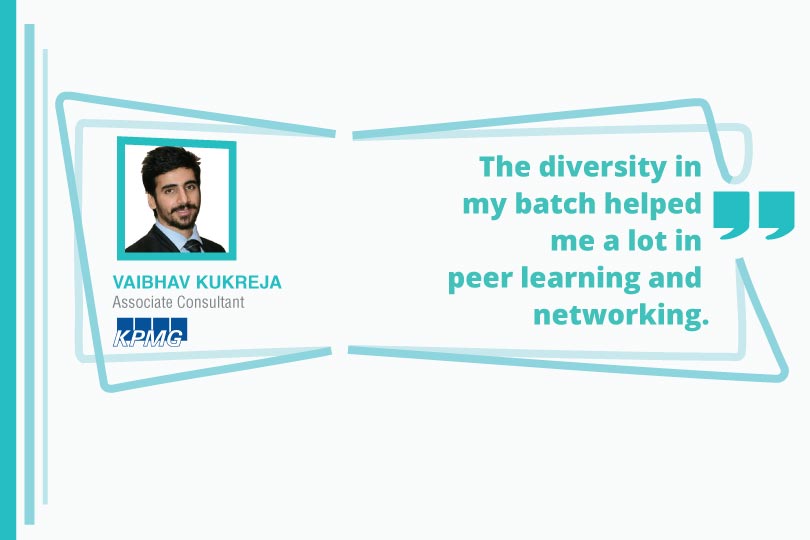Indian IT companies had a decent year regarding financial performance. As per NASSCOM, the Indian IT-BPM industry grew by 8.6% in FY17. In future, growth in this industry will be driven by automation as the adoption of new digital technologies disrupts the industry’s traditional business model.
The IT Industry will remain a major net hirer in FY 2018. However, the emphasis of hirers will have changed dramatically; shifting from scale to skills. Global advisory firm McKinsey & Company claims nearly half of the workforce in the IT services firms will be irrelevant over the next 3-4 years. Their report has suggested that IT services providers must turn around their businesses in major ways including investment to re-skilling employees with emerging technologies.
With this skilling/re-skilling challenge, the sectored labor market can translate into 2 million people working on next-gen technologies in India within the next five years. Here are the top 3 roles that will have the greatest demand in 2018.
Cybersecurity
Flashback May 2017; a worldwide attack by a cybersecurity cryptoworm, WannaCry shook the IT world, affecting 2.5 lakh devices across 150 countries. A wake-up call for the industry, it brought about the importance of cybersecurity in today’s day and age. Firms are increasingly investing in private cloud infrastructure to avoid any risks of data leakage and cyber attacks of a public cloud.
There will be a global shortage of 2 million cybersecurity professionals by 2019, according to ISACA, a non-profit information security advocacy group. Indian NASSCOM President R Chandrasekhar has predicted the need for at least 1 million skilled cybersecurity professionals. Currently, the supply stands at a mere 50,000.
The most in-demand cybersecurity job roles are Cybersecurity experts and IT Generalists – with a deep understanding of Cybersecurity. Cybersecurity experts are professionals who work full-time in the domain of cybersecurity, including forensics, incident response, and software security specialized roles listed by the Data Security Council of India. IT Generalists, on the other hand, are experts in IT, with additional core knowledge in network security.
How to Get There?
You can enroll in a program offered by universities and research institutes that provide skill development for freshers as well as professionals. Based on the recommendation of the HRD ministry in 2013, many universities offer graduate-level programs in specific domains of cybersecurity.
According to Telangana Information Technology Association (TITA), the average starting salary even for freshers who take cybersecurity as a subject ranges from Rs 4 lakh to Rs 5 lakh while for engineering graduates in most other fields, it ranges from Rs 2.5 lakh to Rs 3.6 lakh.
If you are an IT professional looking to enter this role, you can get a professional certification to be considered for it, like CISM (Certified Information Security Manager) or CISSP (Certified Information Systems Security Professional).
Data Scientists
As per PwC’s 6th Annual Digital IQ survey of more than 1,400 leaders from digital businesses, business analytics is the area of investment that tops CEOs’ list of priorities. Global organizations like NEC, Mercedes-Benz, Walmart, and Accenture have set up their data science centers of excellence in India. It is the epicenter of the data explosion, surrounded by information that exists in disparate systems, waiting to be converted into meaningful insights.
Analytics India Magazine, in its 2017 edition, explains how the result of the slowdown in old IT technologies coupled with the rapid rise of data science has been a major job boom for analytics and data science professionals in India. Jobs in data science have grown by 100% over the last year adding thousands of employment opportunities.
On an average, a Data Scientist in India earns a salary of 6.2 lakh per year (as per data on PayScale.com); with experience greatly influencing the income increase for this job role. The most in-demand skills associated with the job are Data Mining, Data Warehousing, Machine Learning, Java, Apache Hadoop, and Python. Additionally, they use data visualization tools to depict their insights—a step that doesn’t require any major investment, once all the journal data is pulled together. This allows them to perform a more exact analysis and display their findings in a visual way that their client can easily understand.
How to Get There?
You can acquire knowledge of languages and tools such as R, Python, SAS, Hadoop, Spark, NoSQL along with getting well versed with statistics, predictive modeling, linear algebra, machine learning, text mining and handling big data. There exist a plethora of resources that promise to help you up-skill– MOOCs, blogs, books, Master’s programs, boot camps, forums, and podcasts. The easier and most effective path for you will be to take on projects, which will give you exposure to many relevant tools to build your insight. You can get such projects on Kaggle & Crowdanalytix or any other available data sets on the internet; these projects can be a great source of learning for you and an even greater incentive for a recruiter to hire you.
Platform Engineering
A platform software engineer is a “generalist” as opposed to a “specialist” who understands the entire spectrum of the technology stack of a company. One of the reasons for hiring a platform software engineer is to make improvements to the platform itself, for example, to make it more scalable. To make such improvements, you would need to know the existing technology stack, as well as develop a holistic knowledge to decide what parts of the stack you would replace to accomplish the company’s platform goals.
As a platform engineer, you work as a team lead and work on building a platform from scratch; which involves working closely with product management and UX Design teams to build a product/service model with scalable, efficient and secure features for the platform as a whole. As a senior platform engineer, the job role shifts to an analysis of systems assisting architect network and application changes.
How to Get There?
You need to have a technical background, with a comfort level with operating systems, networking, and communication protocols. You don’t need to master programming in high-level languages. However, platform engineers often need to write scripts to perform routine functions or extract information from log files. They should be familiar with shell and other common interpreted scripting languages such as Python, Java, C#, PHP, Ruby, Python, C++, Javascript, WPF, Erlang, Haskell, LISP, Linux, Flex, XUL, Bash, Advanced Networking, etc. You need to understand the network topography or application, monitoring tools, and how to respond appropriately to systems alerts.
Instead of thinking regarding particular language skills or specific platforms, you need to think regarding how to define “the problem” in a condensed format and set it out in a form that can be interpreted and executed easily.
Conclusion
With the advent of cloud, data, and connectivity, 2018 will see evolutionary advances in the IT domain. The digital business transformation will be a driving force for small as well as large enterprises. As an IT Professional, you can seek the opportunity to explore advances in areas such as artificial intelligence, advanced data analytics, internet of things, and possibly, more unexpected breakthroughs.









